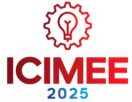PLAGIARISM
Plagiarism refers to the unauthorized use and representation of another author’s language, ideas, thoughts, or expressions as one’s original work. It is considered a violation of academic integrity and journalistic ethics, often resulting in penalties, suspensions, or even expulsion.
In recent years, instances of ‘extreme plagiarism’ have surfaced in academic circles. The concept of plagiarism being unethical gained prominence in Europe during the 18th century, particularly with the rise of the Romantic Movement, which emphasized originality.
While plagiarism is not classified as a crime, it can overlap with copyright infringement. Although both involve unauthorized use of someone else’s work, copyright infringement is defined and punished under copyright law, whereas plagiarism is governed by institutional policies set by organizations like educational institutions, professional bodies, and publishing companies.
Ways to Prevent Plagiarism
Here are some effective steps to ensure your work remains plagiarism-free:
1.Use Plagiarism Detection Tools: Run your content through reliable plagiarism-checking software.
2.Expert Review: Have your paper reviewed by qualified experts for originality and accuracy.
3.Create Original Content: Focus on producing unique and authentic work.
Checking Your Paper for Plagiarism
You can easily verify the originality of your work using plagiarism-checking tools.
Click here to access the best free plagiarism checker for research papers.
ICIMEE Plagiarism Policy
At ICIMEE, we maintain a zero-tolerance policy for plagiarism. Any form of plagiarism is considered a serious violation of ethical standards within the scientific and professional communities.
If plagiarism is detected or reported in any manuscript or published work, strict measures will be taken. Our editorial team, reviewers, and board members are committed to upholding the highest publication ethics and ensuring that malpractice is addressed and avoided.
